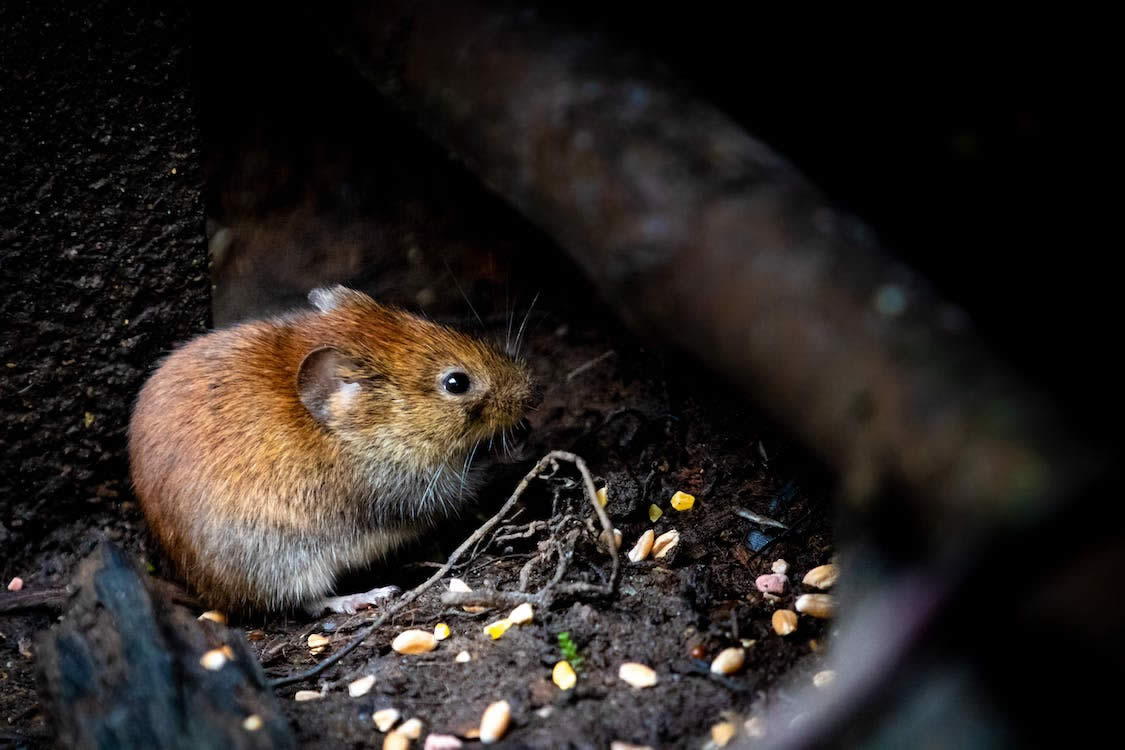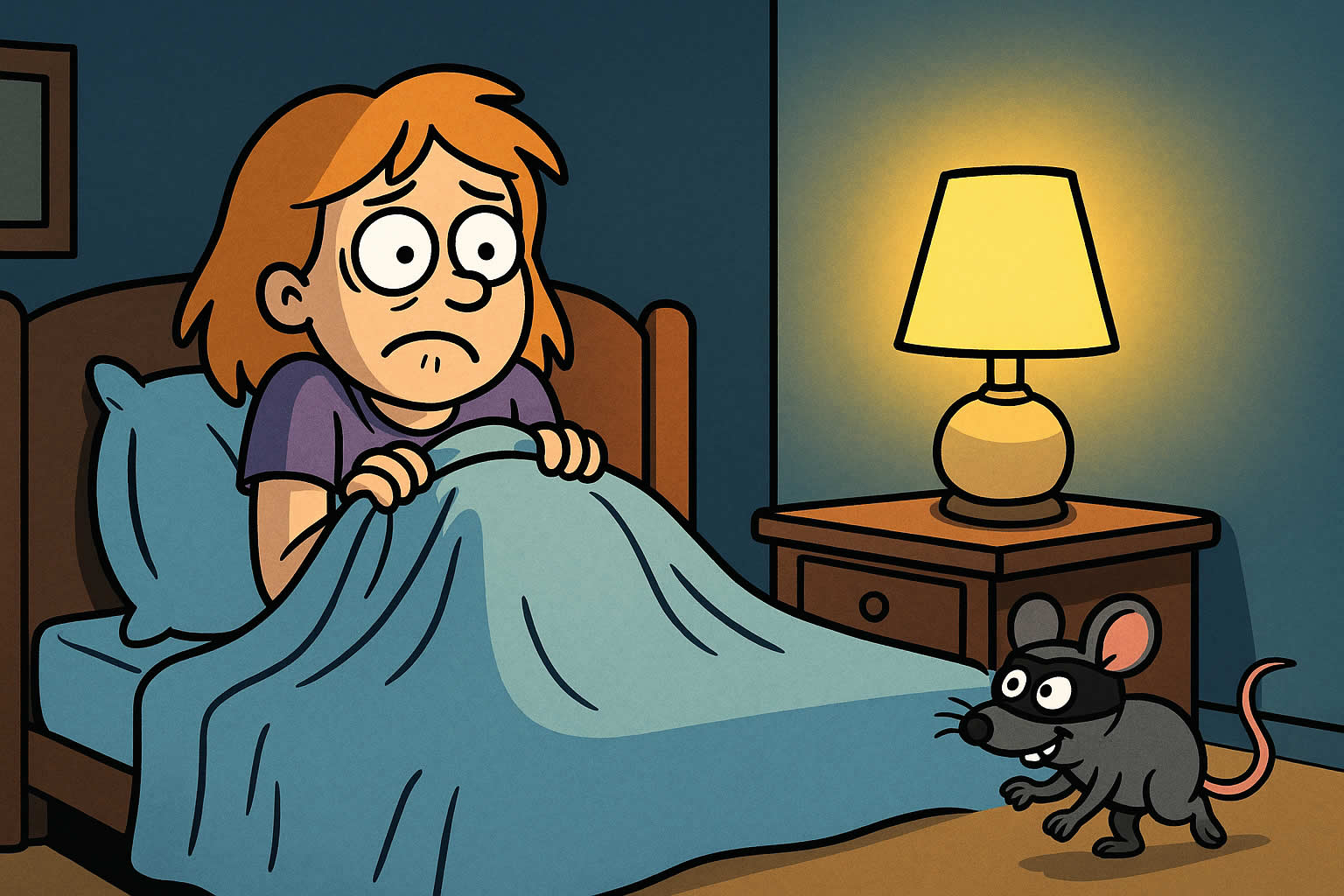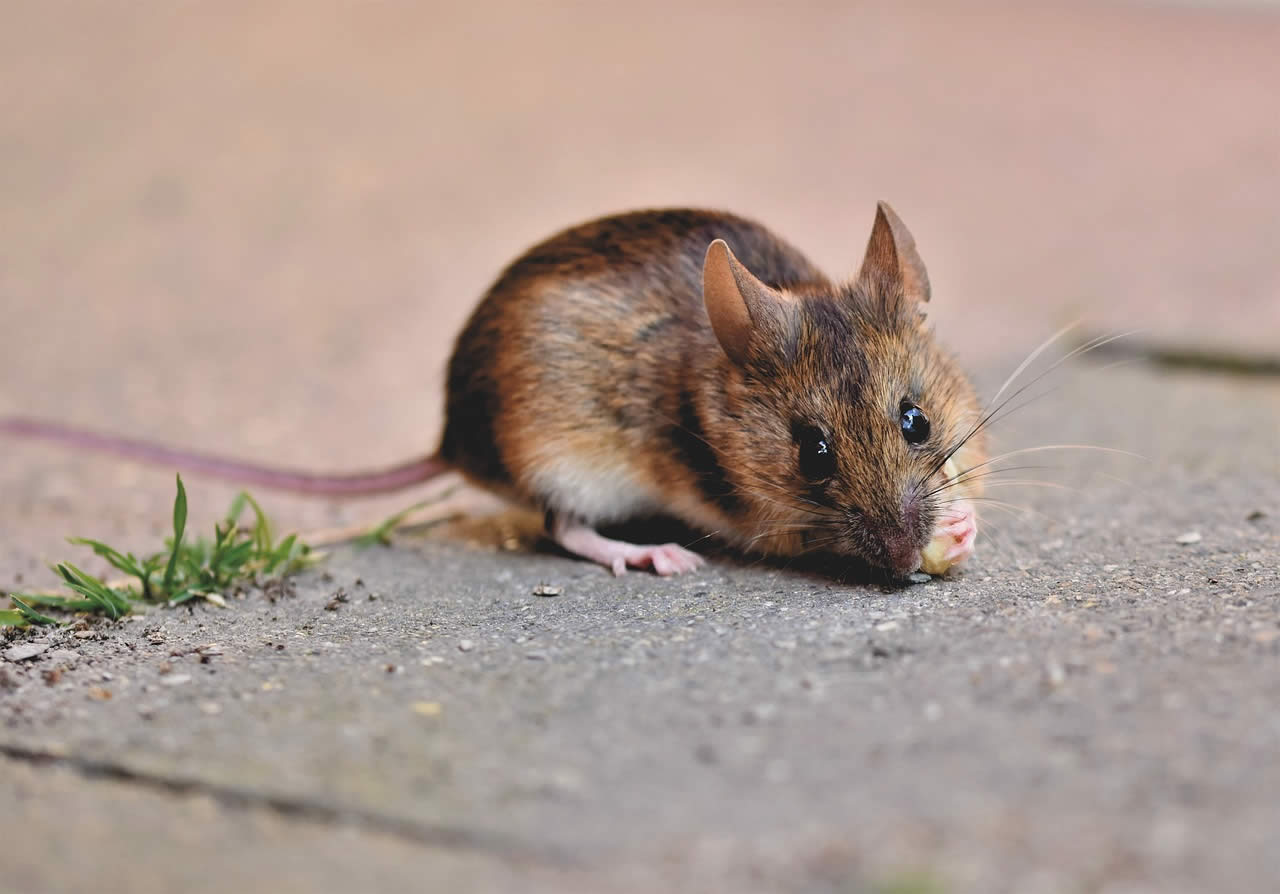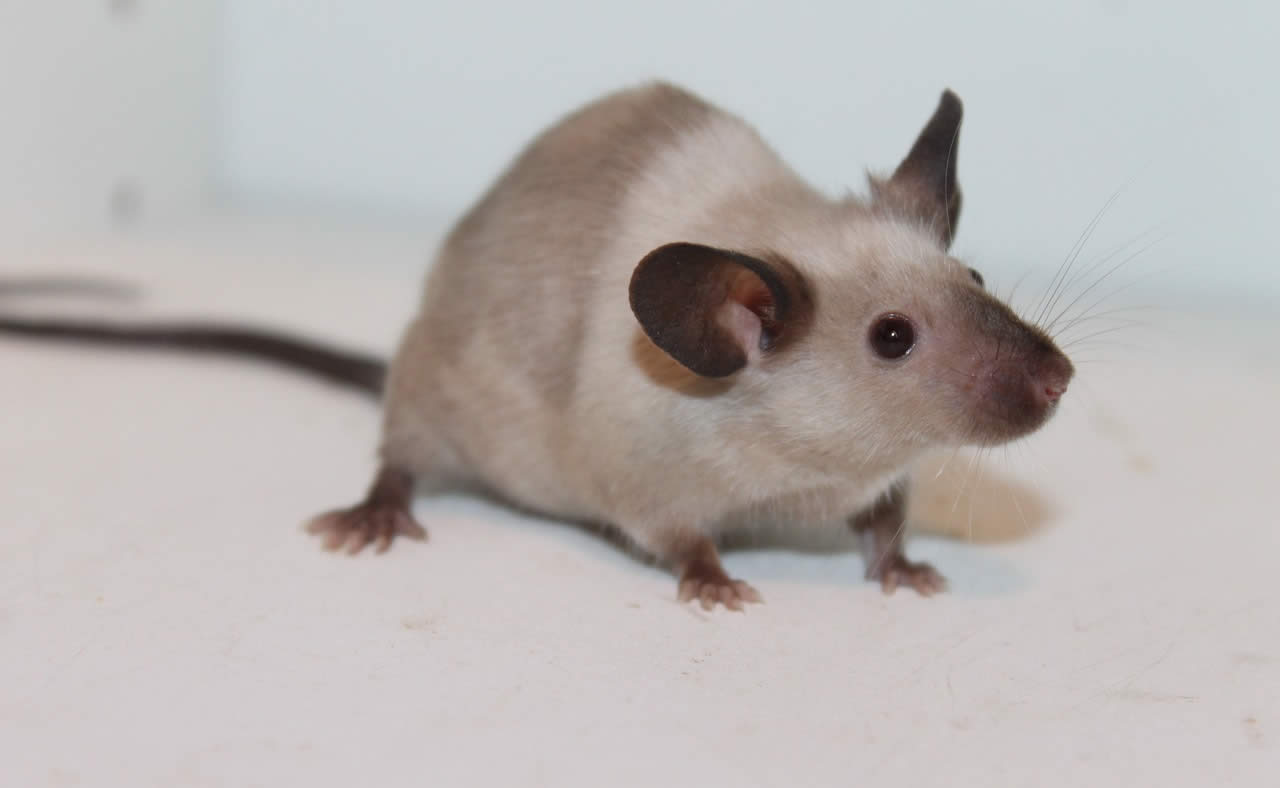Related Queries
ToggleIf you’ve ever heard scratching sounds in the middle of the night, or found chewed-up food in your cupboards when you wake up, you’re probably wondering — are mice nocturnal? The short answer is yes. But there’s a bit more to it than that. And if you’re trying to get rid of them or stop them coming back, knowing how and when mice move around your home makes a real difference.
This guide breaks it all down in a way that’s easy to follow. You’ll learn when mice are most active, why they prefer the night, what signs to look for, and how you can use this knowledge to deal with them more effectively. Whether you’ve seen one mouse or you’re worried there might be more, this is a good place to start.
Are mice really nocturnal?
Yes, most mice are naturally nocturnal. That means they’re most active during the night and tend to rest or stay hidden during the day. It’s not just a random habit — it’s built into how they survive. At night, it’s darker, quieter, and there’s less risk of being seen or caught. In your home, that often means they’ll explore once the lights are off and you’ve gone to bed.
But it’s important to know that being nocturnal doesn’t mean mice never come out during the day. If they’re hungry, desperate, or disturbed, they might be active when the sun’s up too. So if you’ve seen one during daylight hours, that could mean the problem’s already grown bigger than you thought.
When are mice most active at night?
Mice aren’t just active at one point — they move in short bursts, usually just after sunset and again just before sunrise. These times are the quietest in most homes, especially bedrooms and kitchens. That’s when they feel safest coming out to find food, water, or nesting materials.
If you’re listening for them, you might hear:
- Light scratching behind the walls
- Scurrying sounds under floorboards
- Small noises in kitchen cupboards or loft spaces
Sometimes, you don’t hear them at all — but you might wake up to signs they’ve been around. Crumbs on the floor, tiny droppings, or shredded bits of paper and fabric.
Why do mice avoid coming out during the day?
It’s all about safety. In the wild, mice avoid predators like birds, foxes, and cats. Indoors, the threats are a bit different — people, pets, vacuum cleaners, sudden lights. By sticking to the night-time hours, they reduce their chances of being caught or scared off.
But if the mouse feels comfortable enough — or if there’s not enough food at night — it might take the risk and move around during the day. That’s why you should never ignore daytime sightings. They don’t mean the mouse is bold. They usually mean it’s under pressure. And that often means there’s more than one.
Do mice sleep during the day?
Yes, mice spend most of the day resting. They sleep in short bursts rather than long stretches. In your home, they’ll find hidden places where they won’t be disturbed — places like wall cavities, behind kitchen units, under floorboards, inside boxes, or in loft insulation.
They build their nests from whatever they can find. Paper, cloth, bits of food packaging, pet hair — if it’s soft, dry, and close to a food source, they’ll use it.
If you disturb their nest or routine, they may relocate to a quieter part of the house. That’s why you sometimes notice them in one room for a while, and then in another a few days later.
How does knowing their routine help you get rid of them?
Understanding when mice are active helps you plan when and where to act. If you’re setting traps or cameras, night is the best time to do it. If you’re checking for entry points, you’ll want to inspect the places they pass through during their evening routines.
For example, placing traps along the walls they run along or near cupboards they visit at night can make them more effective. You’ll also know to check for fresh droppings or gnaw marks in the morning, rather than the evening.
Here’s how it helps in practice:
- Set traps just before bed and check them early in the morning
- Listen out for sounds in the middle of the night to pinpoint where they hide
- Use a torch to look behind appliances or along skirting boards after dark
- Clean up food crumbs and bin bags before going to bed — less food = less reason for them to visit
By working around their schedule, you increase your chances of catching them or spotting signs early.
Are house mice different from wild mice?
Yes, they are — but not in terms of being nocturnal. Both types tend to be active at night. The main difference is that house mice are better adapted to indoor life. They breed faster, climb better, and feel more at home in your walls than a field mouse would.
Wild mice might enter a home briefly in search of food, but house mice are likely to settle in and start nesting. That’s why it’s so important to act quickly. A pair of mice can become a serious infestation in just a few weeks if left alone.
Can lights keep mice away at night?
It’s a common thought — leave a light on and they’ll stay away. But it’s not that simple. Mice prefer the dark, yes, but they’ll still come out in low light if they need to. Leaving a light on might delay them, but it won’t stop them completely. And it definitely won’t make them leave.
Instead of focusing on light, focus on what they’re coming in for: food, water, warmth, and shelter. If you take that away, they’ll have no reason to stay, whether it’s dark or light.
How do you know if mice are active at night?
Even if you don’t see them, they leave clear signs behind. If you wake up and notice any of these, you’ve probably had a visitor while you slept:
- Small dark droppings along walls or in corners
- Chewed packaging or gnawed holes in cereal boxes
- Shredded paper or fabric used for nesting
- Musty smells in quiet areas like behind appliances or inside cupboards
- Grease marks along skirting boards where they brush past repeatedly
Try placing a light dusting of flour or talc near a suspected entry point overnight — if you find tiny tracks in the morning, that confirms movement.
Should you stay awake to catch mice?
You could — but it’s usually not necessary. Instead of staying up all night, use their patterns against them. Mice run along the same routes each night, often hugging walls and corners. That’s where you want to place traps, motion sensors, or infrared cameras.
If you do want to try spotting one in action, keep the room quiet and the lights off. Then wait and listen. Any light rustling or tapping could be them. But be patient — they’re cautious and will wait until they feel safe.
What if mice stop coming out at night?
If you’ve been setting traps or putting out bait but nothing’s been touched for a while, a few things could be happening:
- They’ve moved to another part of your home
- They’ve learned to avoid the traps
- The infestation has grown and they’re feeding during the day too
- You’ve successfully reduced their numbers and activity
It’s worth checking carefully. Move your traps to new locations. Look for signs in other rooms or near entry points. And make sure your food is stored securely — even the smallest crumbs can keep them coming back.
How can you stop mice from coming back?
Once you’ve dealt with the problem, prevention is key. And knowing that mice are nocturnal gives you an edge. If your home doesn’t feel safe or quiet at night, they’ll be less likely to return.
Focus on these key areas:
- Seal up holes and gaps around doors, skirting, and pipework
- Keep food in airtight containers — not cardboard boxes or plastic bags
- Clean up crumbs and food waste before bed
- Empty bins regularly and keep lids sealed
- Reduce clutter, especially in lofts, garages, and under beds
Doing this consistently makes your home much less attractive to mice — day or night.
Final thoughts — timing matters
Yes, mice are nocturnal. But more than that, they’re creatures of habit. They move with purpose, they return to the same spots, and they look for the same comforts every time. That means if you take a bit of time to understand how they behave, you can outsmart them.
You don’t need to watch them all night. You just need to know when and where to look — and what to do next. Once you’re one step ahead, you can deal with them quickly, calmly, and permanently.
Pest Control Billington – Pest Control Woodside – Pest Control Berkshire













